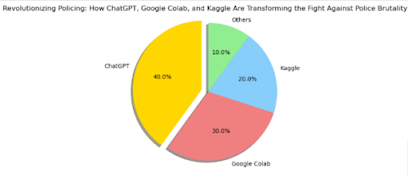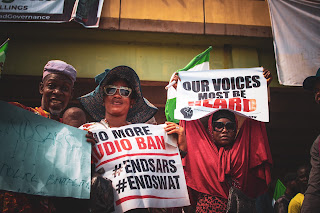A 27-year career cop admits that police officers are trained to fabricate reports and portray themselves as heroes.
Prior to the advent of computers and body cameras, people were compelled to enter court hearings with the mindset that "it was my side of the story versus the police." Who do you think the jury will believe? " However, given the technological era in which we now live, the word of police personnel may be questioned. However, one former policeman argues that this is insufficient, stating that policemen are trained exactly how to falsify police records for misleading reasons.
Thomas Nolan spent 27 years on the job as a policeman and claims he was not a very outstanding beat cop but was unmatched in his ability to write police reports. He was so skilled at phrasing police reports deftly that other officers inside the Boston Police Department sought his help with their own reporting. The Insider reports:
He regularly advised his subordinates to include a brief list of keywords in their reports in order to portray themselves as the hero and the suspect — who may have been wounded or murdered — as the aggressor. Ultimately, the use-of-force reports were replete with the terms "resist," "overcome," "vigorous," "aggressive," "subdue," "fear," and "attack," according to Nolan, even if they were exaggerated
Nolan, an associate professor of sociology at Emmanuel College, acknowledges that he previously believed he was doing the right thing. He is now admitting that the practice of meticulously writing police reports in order to portray the officer as a hero and the criminal as a villain is, at best, misleading. He explained to the Insider:
I believed these police were out there doing the right thing and apprehending bad people, even though they often did it in ways that did not pass legal scrutiny, and I helped them get over the hump...
That, I believed, was my contribution, my essential contribution.
In the past, it was easy to get away with abuses of power perpetrated by rogue, even criminal cops, because there was no proof of the lies they would detail in their police reports. With nearly everyone now carrying around high definition video cameras in their pockets, or built into their vehicles, lying on police reports is quite difficult to get away with, but it still happens.
What we've seen develop over the years, as recordings have become common representations of police contacts with the public, is that there is very strong evidence that police officers have misled and mischaracterized situations in which they were engaged...
The recordings bolster many people's mistrust of the police and their account of the events.
Officer Justin Henderson of the Aurora Police Department was arrested last year for trespassing on Dr. P.J. Parmar's property, which includes a refugee home operated by the doctor. Parmar did not notice Officer Henderson when he drove into the driveway of his building. Henderson was allegedly drafting a police report in his patrol vehicle when Parmar drove into the property. To avoid frightening the police, the doctor honked his horn to alert him to his presence.
Henderson left the car, pulled his pistol, and began screaming commands and obscenities at the doctor, who was on the premises dropping off some Boy Scout group supplies. The Indian-American physician informed the police that he was trespassing and requested that he leave the area. Henderson's backup reportedly lied and said Dr. Parmar was trying to run him over with his car. Parmar is now suing.
The practice of manufacturing falsehoods begins with police reports that are fabricated to suit the officer's or department's story and often concludes with the law enforcement agency's public relations department, which nearly always has the last word on what occurred when a suspect meets police. The actual truth is never disclosed until all of the facts are established, which is often done in a trial setting for those wealthy enough to pursue a matter to trial.
The liar policeman was exposed. According to a sociology expert, the habit of lying to preserve an officer's or department's reputation exemplifies systemic corruption. Nolan said in his 2019 book "Perilous Policing":
This stilted, inaccurate 'legalese' is often employed in the police vocabulary and serves as the foundation for the narrative used by police across the United States...
The narrative's ultimate goal is to absolve the police of any responsibility or accusation that the use of force depicted was excessive, unwarranted, or illegal.
So what can ordinary people do to fight law enforcement organizations' and officers' devious habit of fabricating police reports? The first and most fundamental right of every person is to refuse to communicate with police enforcement. Maintain silence. When you come into contact with the police, your Fifth Amendment rights apply.
Second, document everything. Record all interactions with police enforcement, including the seemingly insignificant ones. If you are compelled to engage with police authorities, even if and when they attempt to scare you into stopping your recording, continue recording and explain that you are exercising a constitutionally protected right to free expression. Make a video of it, save it to your computer, publish it to the cloud, and distribute a few copies to friends and family. And then retain the services of an attorney. You may find yourself in need of exculpatory evidence in your own trial at some point.




Comments
Post a Comment